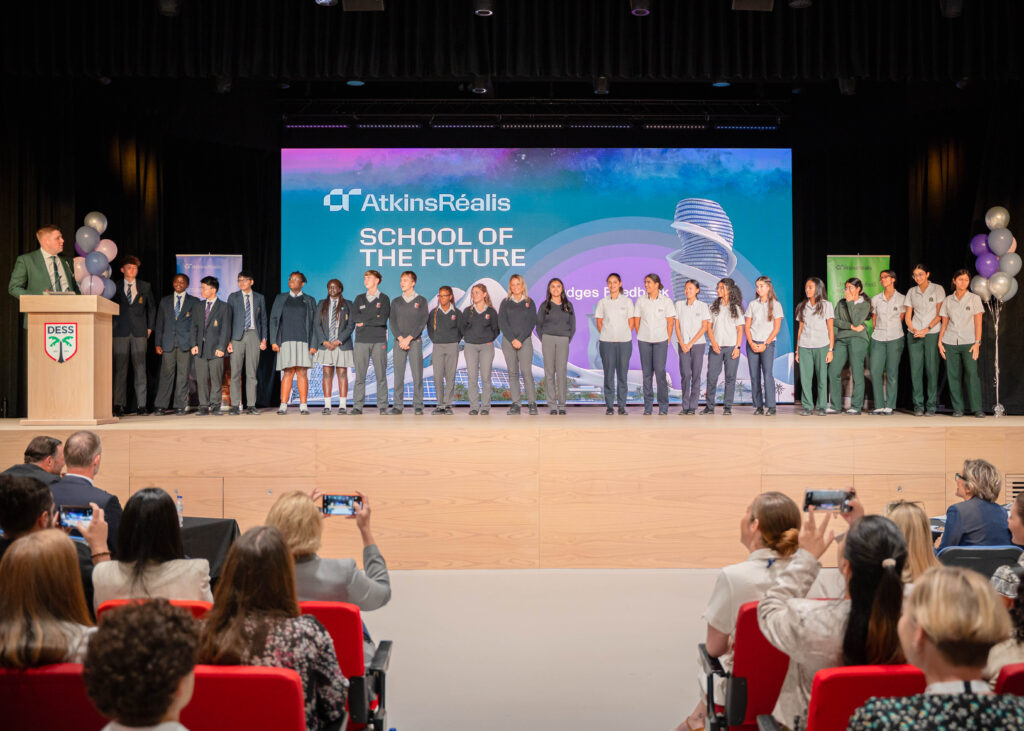Students from four UAE schools showcased their visions for sustainable school campuses as part of the School of the Future initiative, organised by AtkinsRéalis, a global engineering and design company. The 2025 finals took place on 14 May at Dubai English Speaking College (DESS) and marked the second year of the initiative’s expansion in the UAE.
The programme, originally launched in the UK, aimed to engage students aged 14 to 16 in designing future-ready, environmentally conscious school campuses. This year’s event brought together participants from Repton School, Jumeirah College, JESS Dubai, and DESS, who worked in teams to address sustainability through engineering, technology, and creative design.
Campbell Gray, CEO of AtkinsRéalis Middle East, described the initiative as an evolving success.
“As this initiative continues to grow year on year, we are proud to see the strong interest and engagement from both students and educators alike in the UAE,” he said. “By expanding the programme across more schools in the region, we hope to continue strengthening the link between industry and education by helping young people become future-ready leaders in sustainability and innovation.”
Students participated in a multi-phase learning journey supported by AtkinsRéalis STEM Ambassadors. With mentorship, they developed data-driven campus designs that incorporated artificial intelligence, renewable energy systems, smart infrastructure, and water conservation technologies. The teams were also encouraged to evaluate the social impact of their proposals on surrounding communities.
The final showcase saw students presenting their design concepts to a panel of judges drawn from various sectors. Entries were assessed on their innovation, collaborative approach, and practical sustainability features.
Laura Reidy, Head of Information, Advice and Guidance at DESS, praised the competition for its educational impact.
“Partnering with AtkinsRéalis for the School of the Future competition has been a powerful opportunity to bring industry and education together,” she said. “Our students were inspired by the challenge to think big, design boldly, and reimagine what learning could look like for future generations.”
The initiative supports AtkinsRéalis’ long-term sustainability strategy and contributes to the United Nations Sustainable Development Goals, particularly those related to quality education and sustainable communities. Organisers confirmed plans to continue expanding the programme across more schools in the Middle East.
By engaging students in real-world challenges through a project-based framework, the School of the Future initiative seeks to inspire the next generation of designers, engineers, and environmental stewards.
For more information, visit atkinsrealis.com.

